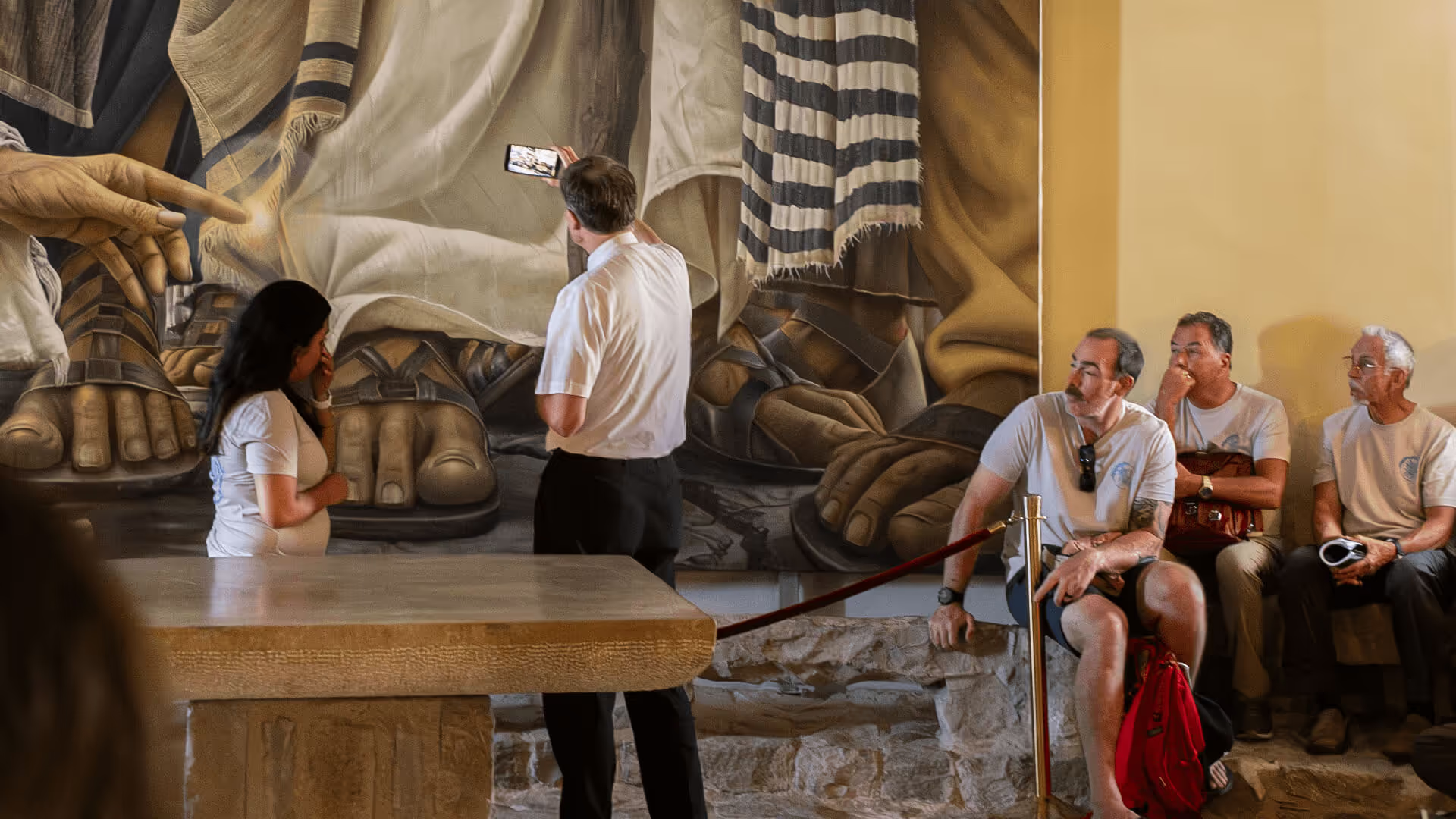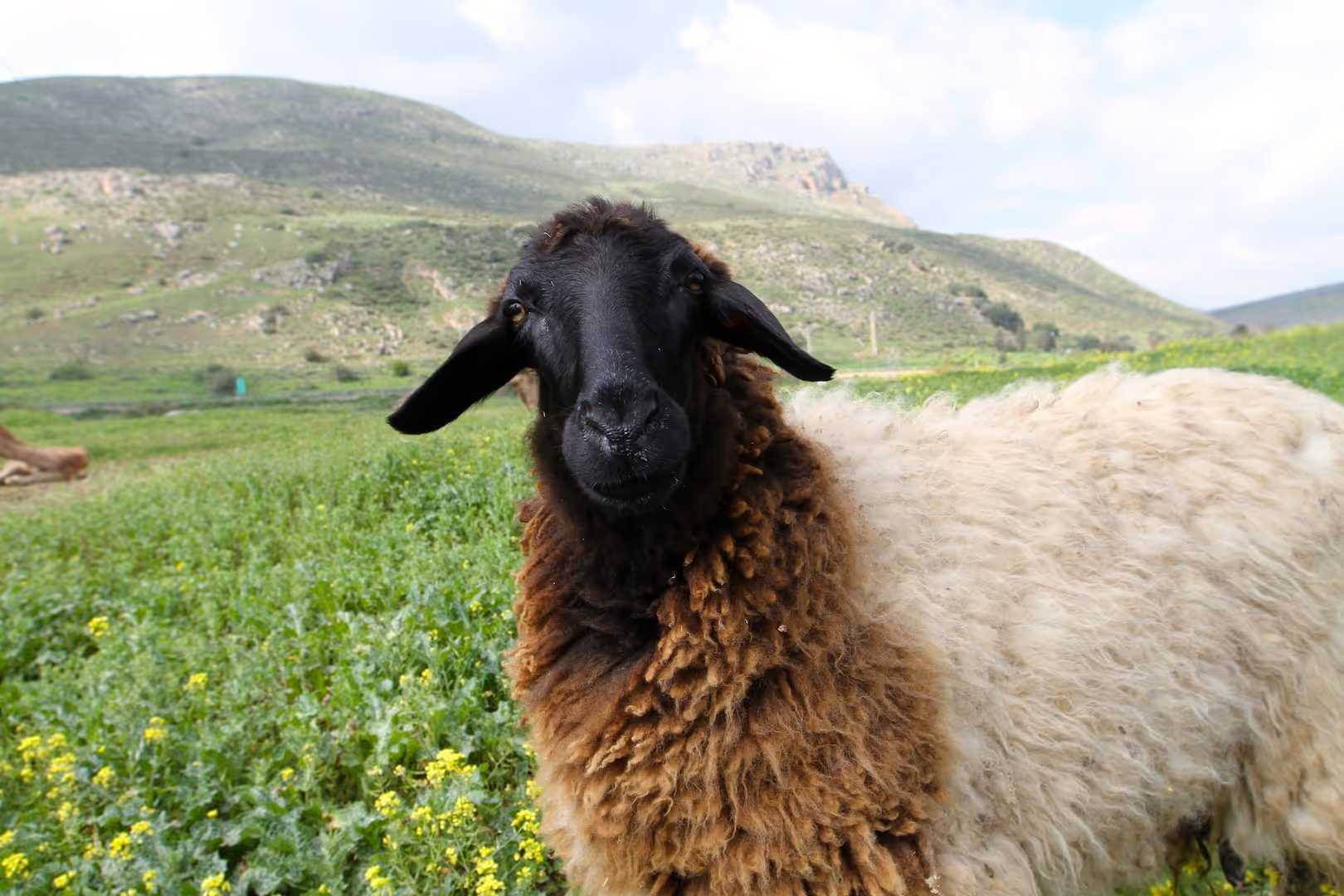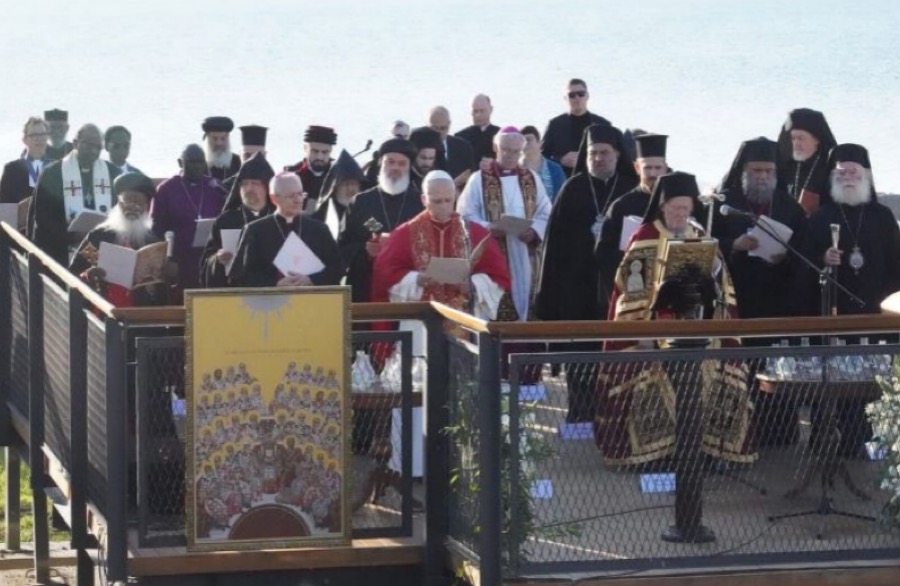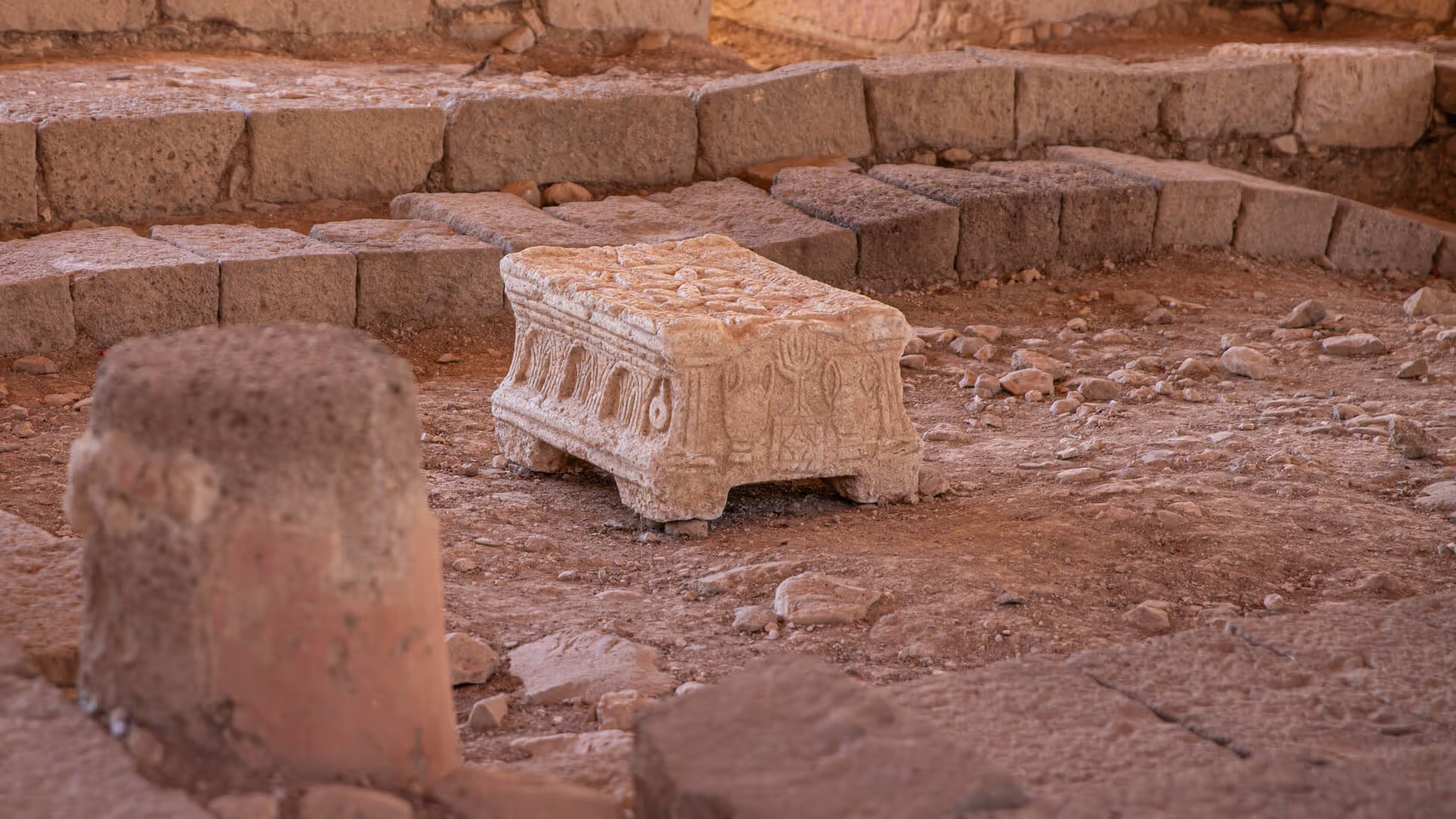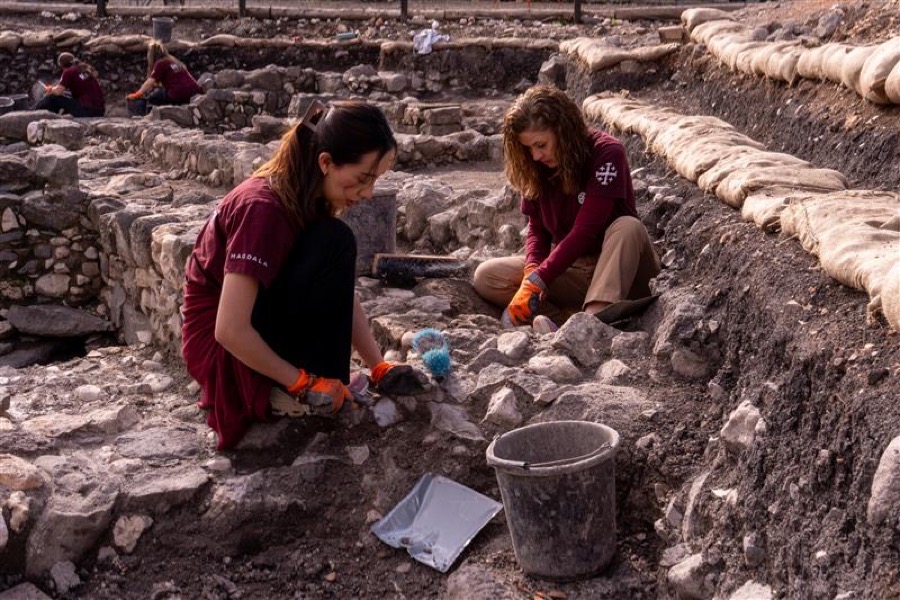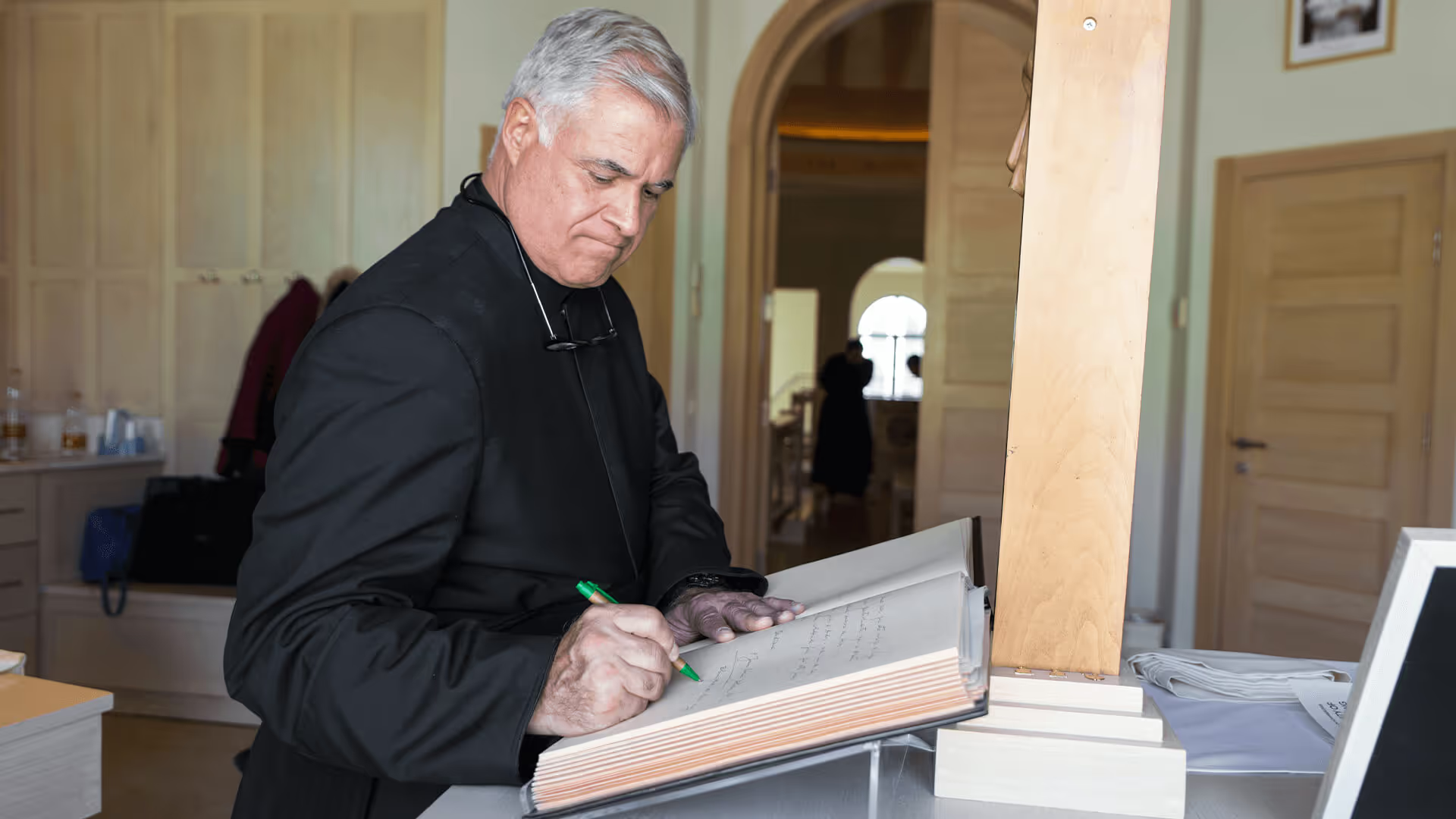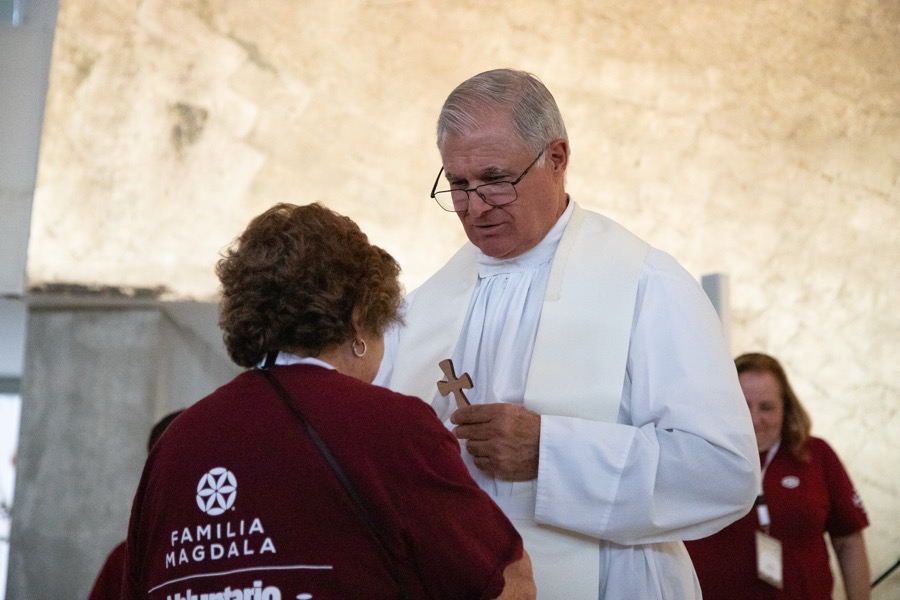Many Christians worldwide are conscious of a major doctrinal milestone that provides quite some light on what it means to profess the Christian faith. 1,700 years ago, an agreement was reached about the proper teaching on who Jesus is, which is known as the Nicene Creed. Doctrine is indisputably important because Truth is important and because Christ self-presented as the Way, the Truth, and the Life. Since the Reformation, 500 years of accentuated doctrinal focus, apologetics, and mutual exclusions from belonging have transformed some Christians into hyper-debaters and decision-makers about who should or should not belong.
Liturgy is also all important: how we worship God is no trivial matter! But even Jesus says we could interrupt, or rather, we must interrupt our liturgy and reconcile first. In a time of virulent divisiveness, this becomes quite the tension inside our liturgy liturgical practice.
Presumably the priest and the Levite who preceded the Good Samaritan on the road to Jericho were neither short on doctrine or liturgy, yet the repugnant one who belonged to an estranged people with a wayward doctrinal understanding and an alienated liturgical practice on Mt Gerazin gave a compelling example of a good life based on a true understanding of one of the most important pillars of society, the dignity of every human being, no matter how beat up, because we are all created in the divine image and likeness.
We are blessed to work together in Magdala with a variety of confessionally different followers of Jesus. Confidence and team spirit are blossoming wonderfully. We notice prejudices are giving way to flourishing friendships. In recent meetings, some have independently posed the question about the need for a doctrinal statement to shore up the doctrinal edges of who can belong.
In an interesting twist of conversation, one person remarked that he had not discovered any of the famous three “sola” — sola scripture, sola fides, and sola gratia — listed in the Last Judgement series of issues for evaluation as taught by Jesus in order to qualify for the separation of the sheep and the goats. What seems to count primarily are is taking care of the hungry, thirsty, strangers, naked, sick,and imprisoned. Someone else quipped that neither are they found among the 8 beatitudes nor the famous description of charity. Of course, these observations don’t detract from the importance of doctrinal questions, but they give doctrinal debaters pause as to their place in the context of a complete life and living as Christian disciples.
Maybe this perception was also at the root of the encouraging reactions of groups of Pentecostal pastors from Brazil and Evangelical pastors from Argentina who visited us in recent weeks. Initially, one could sense an air of suspicion and distance, maybe even a touch of antagonism. After spending about thirty minutes together presenting Magdala, embraces marked the departing atmosphere for both groups. Prejudices once again gave way to budding friendships.
Were Christians of various confessions to engage in service projects together, how much doctrinal consensus would be required? Would it suffice that we are disciples of Christ who are engaged in radiating the joy of the Holy Spirit as given by the Risen Lord,and that we see those we serve together as made in the image and likeness of our Creator and Redeemer? Maybe as we walk together serving others in need, we would gradually discover each other’s richness of blessings. We could form friendships which allow strong intellectual wrestling that strengthens friendship rather than antagonistically alienating one another.
This reminds me of Pastor Mark from Richmond, Virginia, who sent the following note this past week: “We need to find ways to come together, create venues that foster dialogue that leads to relationship.” He sees this as true of the Holy Land pilgrimage in general. See his full note below. Concretely, in Magdala, we are developing projects of offering hospitality together. Look out for more information soon! Meanwhile, please pray that this initiative will be blessed by the giver of all gifts, James 1: 17.
Maybe it is more about living in the center than debating the edges!
FAITH INCREASES. WHAT DIVIDES US.
For 30 years this year my wife and I have had the opportunity to lead many pilgrimages to the holy land of Israel. We have also been blessed to host groups of pastors and had the joy to have them see their bible come alive as they could see and touch so much of what they had committed to study. It is almost a cliché to say that Israel is a transformative experience. A friend of mine wrote a song that said as much with the words “you’ll never be the same”
A few years ago I met up with an influential ministry leader at a corner café in Washington dc. This was someone I had hosted in Israel. Reflecting on his experience there he said something I will never forget. “Religion breaks down when you go to Israel”, to that I would add Religion breaks down, but faith increases. The things that divide us a Christians become less important.
Just recently I was an invited guest of an esteemed pastor for a special gathering of international pastors at the church where he served. He asked the congregation who worshiped there “how many churches did Jesus create” the answer was simple – one, but everyone knew the awkwardness of that answer- that the history of Christianity was one of division. We know that when we stand before Jesus it will not matter what denomination we are, or what church we attended. As believers and followers of Jesus Christ, we are to be one body. How do we achieve oneness? We can debate the things that divide us endlessly but what can bring us together to have a meaningful relationship? We can start with what Jesus said would be a distinctive – love! Jesus very clearly said in the gospel of John 13:35 “By this everyone will know that you are my disciples, if you love one another.” We need to find ways to come together, create venues that foster dialogue that leads to relationship. We need not compromise with the world or forsake scripture, but we also do not want to be lost in legalism. Religion does break down in Israel, the barriers do seem less important the closer you get to the source to where it all began. It is Jesus that unites us.
- Pastor Mark Jenkins, Richmond, Virginia. Cofounder and President of Words of Victory Ministeries. Executive Producer for over 30 years of the The Victory Hour, the longest-running Christian Bible TV program in the U.S.
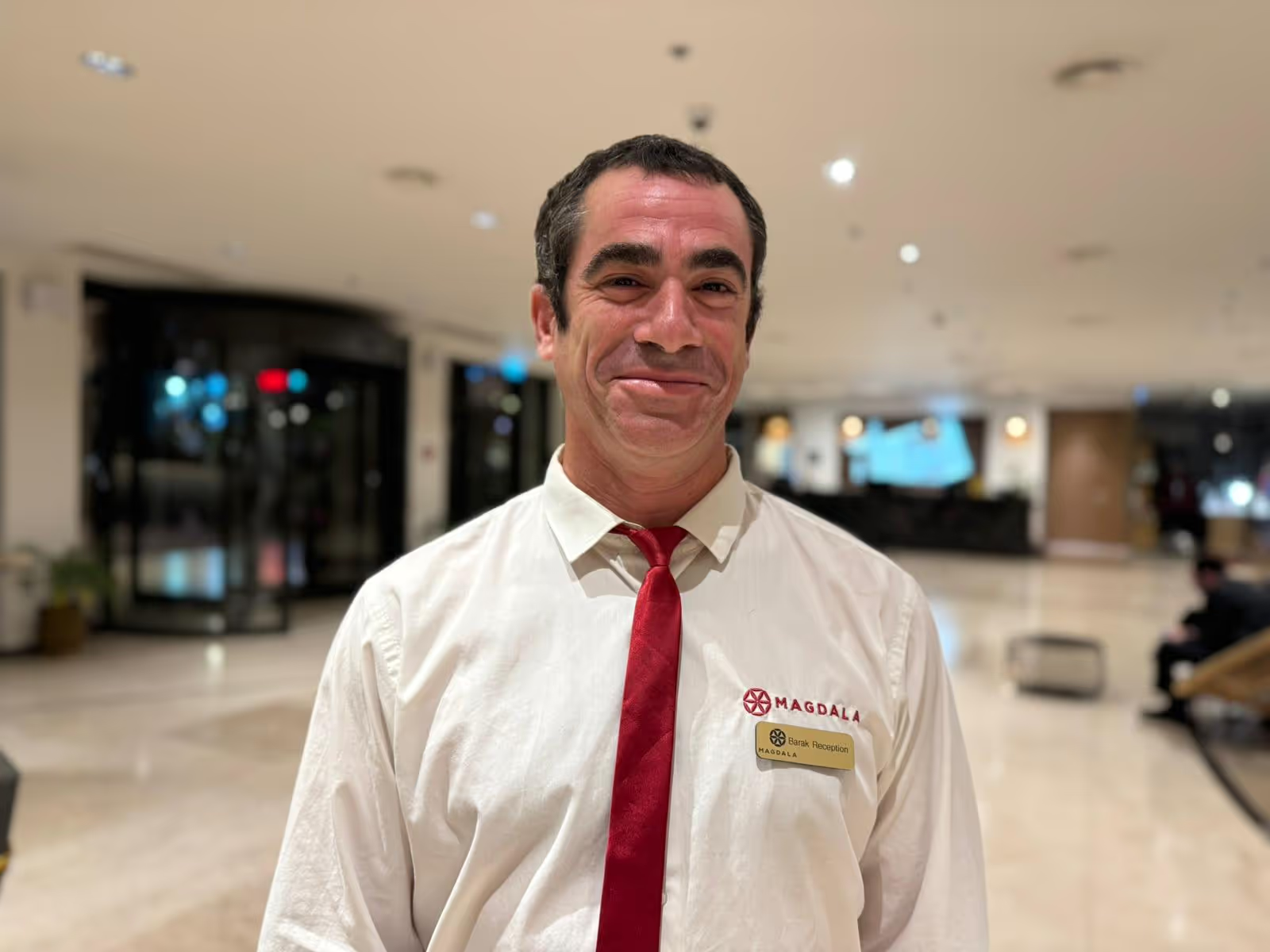
Barak Laness
Receptionist
“The daily rich encounter here is the reason I’d never want to stop working here”
Barak Laness has been working since 2019 as a part time receptionist at Magdala. His primary love is teaching horticulture since 2012 in Katzrin to primary school children in one of the country’s forty five such specialized schools who receive groups of children from other regular primary schools. Parents want their children to have direct hands-on farming experience, so they understand and appreciate primary food production and farming skills required before the various foods arrive in the supermarket.
Barak is a fourth generation Kibbutz member of Bet Alpha which started in 1922. His great grandfather was a founding member, and his father and grandfather were also born there. His mom is from the USA and he has two siblings and is blessed with two nephews. Sixteen years ago, he married an Israeli. She was one of 9 siblings and her family already provided forty five cousins for Barak’s and her three boys aged 5, 9 and 12, two of whom are red-heads.
Barak’s love for people and his English skills made him an excellent fit for Magdala. He still remembers his first day when he joined the staff for lunch and found himself spontaneously sitting with the General Manager and with Fr Juan Solana plus some volunteers in the makeshift shack in the middle of the archeology. For many years in previous employments, he had never had a personal exchange with management. “Here, you feel acknowledged as a person!”
His own immediate Reception manager on the first day, after the technical systems’ introductions, sent him to explore Magdala and join some tours to “learn what Magdala is all about, its history and culture of encounter.” Most Israelis have heard of Mary Magdalene and some vague idea of her connection to Jesus. “Then you realize you are here where all this happened 2000 years ago.”
The mix of different people, Druze, Muslim, Jewish, Christian, etc., at Magdala and the environment of mutual respect is a sign of what is possible and what we all urgently need. “It’s the reason I’d never want to stop working here. In any one day you encounter the whole world here!”
Discover more articles from this category
